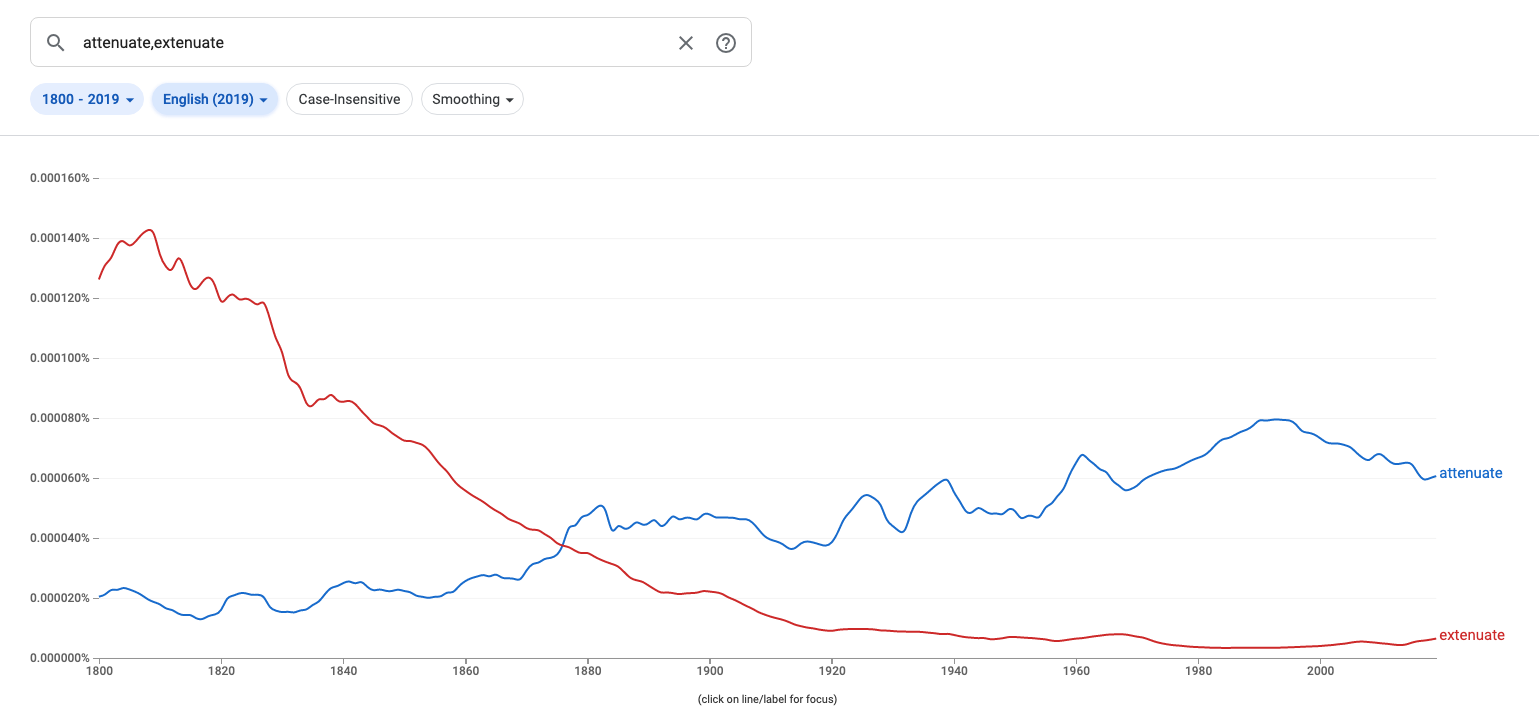Tenuis
Published: 2021-12-18I wrote about the Latin “macer” in the past post, meaning “thin”. But what about the etymology of the word “thin” itself?
It ultimately comes from the PIE “*ténh₂us”, meaning “thin”, and this word has a Latin descendant “tenuis”, which also means “thin” or “weak”. Here are some more English words derived from “tenuis”.
tenuis
The word “tenuis”1 itself remains in English, which is only used in the context of linguistics. Tenuis is one of the Greek letters κ, τ, π, or the corresponding k, t, p of Latin and English. They are called “tenuis consonant”, and the following explanation from Wikipedia is helpful (albeit simplistic) to understand what they are:
voiced β δ γ /b d ɡ/, aspirate φ θ χ /pʰ tʰ kʰ/, and tenuis π τ κ /p˭ t˭ k˭/.
tenuos
This word obviously comes from “tenuis” and means “thin, weak, and easily broken”, which totally makes sense.
attenuate
Pretty common English word “attenuate” is composed of “ad-“ and “tenuis” (or “tenuō”, meaning “I make thin”). This word means “to make thin or weak”, and is often used interchangeably with “reduce”.
extenuate
The word extenuate means “to make thin” or “to diminish the extent”. The Cambridge Dictionary defines this word as “to cause a wrong act to be judged less seriously by giving reasons for it”2. It seems to be still in use today, but personally I have never heard anyone use this word.
I checked the Google Books Ngram Viewer with “attenuate” and “extenuate”:
